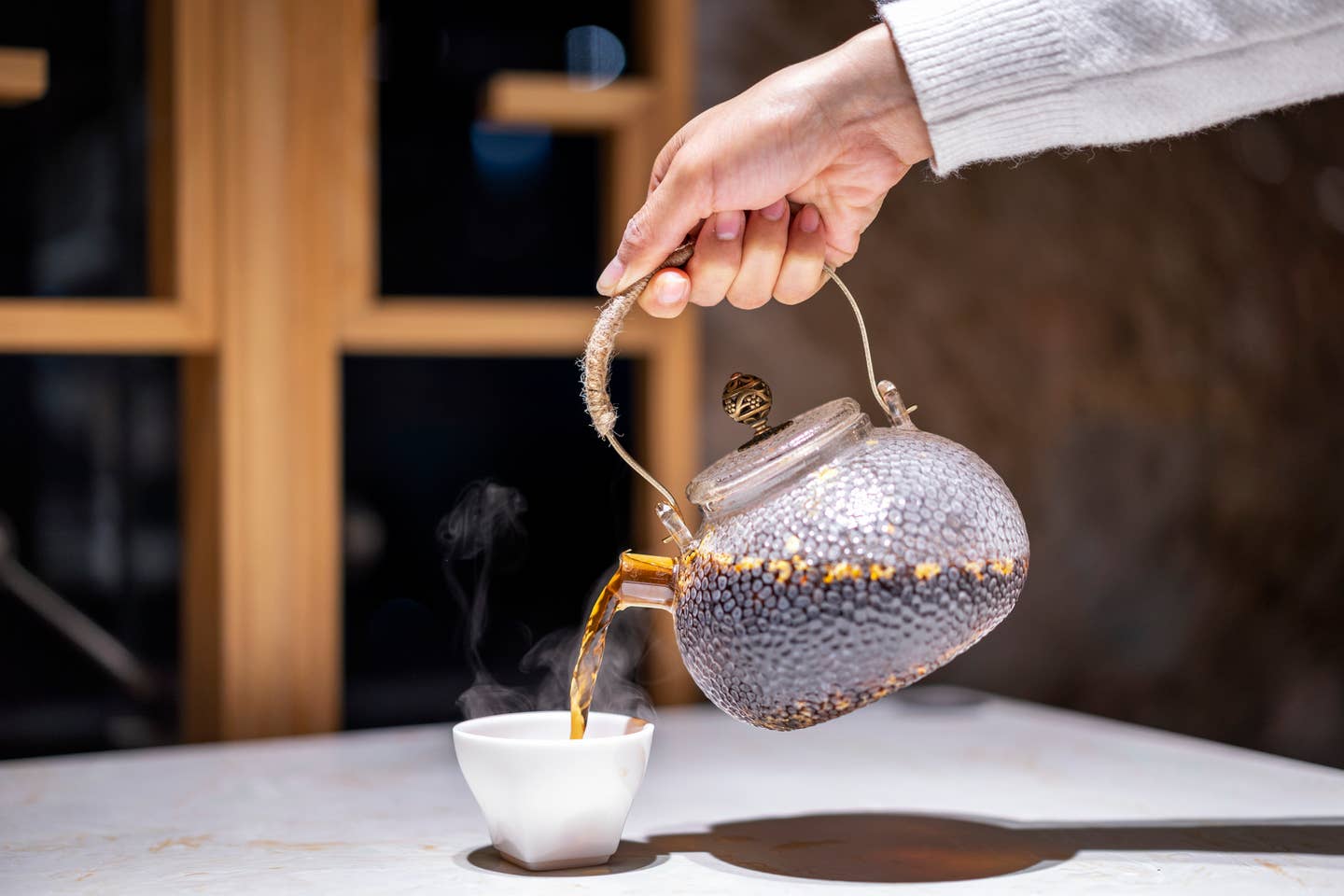
New Study Shows Hidden Benefit of Tea: It Helps Burn Fat, Improves Gut Health
Ask anybody who’s tried to lose weight what’s in their toolbox of tricks, and no doubt they’ll cite intermittent fasting, high-intensity interval (HIIT) workouts, maybe even a plant-based diet. The one thing that is probably not at the top of their list, but should be? Tea.
Tea, the world’s most popular drink behind water, which almost 80 percent of American households have on hand, packs a myriad of health benefits. While weight loss may not be among the ones that are best known, recent studies are starting to change that dialogue. So could it be time to say 'Tea it up!' if you want to slim down? The answer appears to be yes.
The slimming benefits of tea
Tea’s effect on the scale grabbed headlines recently when a study from the journal Nutrients concluded that drinking oolong tea, a traditional Chinese tea that falls between black and green tea, could help torch fat while you sleep. "Like all teas, oolong contains caffeine, which impacts energy metabolism by increasing our heart rate,” says senior author of the study, Professor Kumpei Tokuyama. “However, studies suggest that tea consumption may also increase the breakdown of fat, independent of the effects of caffeine. We wanted to examine the effects of oolong consumption versus caffeine alone on energy and fat metabolism among a group of healthy volunteers."
What they found was interesting. While both the oolong tea and pure caffeine boosted fat breakdown by about 20 percent when compared with the placebo, oolong continued to have effects as people slept. Participants in the study sipped two cups a day to get the effects. Researchers caution, though, that more studies are needed to determine the long-term fat loss effects of oolong.
The results, however, didn’t surprise Tim Bond, Ph.D., of the Tea Advisory Panel in the United Kingdom who wasn’t connected with the study. “Oolong tea has been shown to help increase metabolism (energy expenditure) and fat burning,” he says.
Not a fan of oolong? Studies have found similar benefits with other teas like black and green, the latter seeming to be the most effective for weight loss. “There is evidence that some of the catechins in the green tea specifically may help increase metabolism and fat burning, therefore aiding weight loss,” says Julie Upton, M.S., R.D., co-founder of Appetite for Health. Studies of individuals drinking green tea or taking green tea extracts have shown decreases in body fat, body weight, and waist circumference.
Tea may even help shift gut bacteria to keep unwanted pounds off. People with obesity have low levels of a bacteria called Bacteroidetes and high levels of another bacteria called Firmictures, but tea seems to reverse this ratio back. “Emerging research shows that polyphenols in green and black tea positively adjust the balance between these two bacteria,” Bond says. By itself, green tea can also lead to changes in the gut microbiome which has been linked to lower obesity risk.
There is one caveat: Weight loss from drinking tea is small. “Studies have shown around 3 kilograms (6.6 pounds) weight loss in 12 weeks, but these are often semi-controlled studies where the people have some supervision, “ Bond says.
Don’t need to lose weight? Tea has other health benefits
Weight loss aside, tea comes with a myriad of other health benefits, stemming largely from natural plant compounds called flavonoids. These are found in other plant foods like cocoa, fruit, and vegetables, and they’ve long been associated with multiple health benefits, Upton says.
Start first with heart health. In a study from Advances in Nutrition, researchers found that with each cup of green or black tea you drink, you lower your risk of death from all-cause mortality and cardiovascular disease, Upton says.
Yet another study in the journal Nutrients revealed telling results after examining the role of tea and health among adults over 19. Not only did unsweetened-tea drinkers, in general, make healthier beverage choices, opting for less high-calorie, sugar-sweetened beverages, they also had healthier overall diets, noshing more fruits and vegetables. Tea drinkers also had higher good cholesterol, Upton reports.
Other benefits of tea drinking include reducing dental decay, helping strengthen immunity to prevent illness, and preventing tummy issues like constipation, diarrhea, bloating, and irritable bowel syndrome, Bond says.
So how many cups should you be drinking to get the benefits, especially if weight loss is your goal? Shoot for about four cups of oolong, black or green a day. “That will give you a significant amount of beneficial flavonoids and may help you reduce total calorie intake while providing a modest lift in metabolism,” Upton says. Turn on the kettle!
More From The Beet






